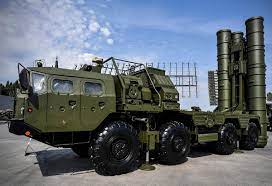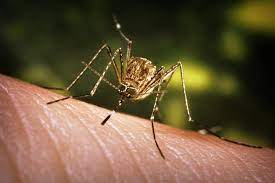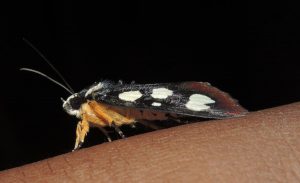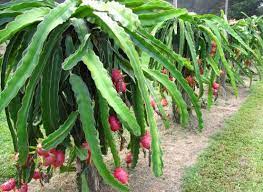Today’s Current Affairs: 15th March 2023 for UPSC IAS exams, State PSC exams, SSC CGL, State SSC, RRB, Railways, Banking Exam & IBPS, etc
Table of Contents
Indian Black Turtle:

The Marakkanam police seized 46 live Indian Black Turtles ( Melanochelys trijuga ) from two persons who were allegedly smuggling them on a two-wheeler, from neighbouring Puducherry.
- Indian Black Turtle is a medium-sized found across the Indian subcontinent.
- It is an aquatic species, mainly associated with standing water bodies, sometimes rivers.
- The species is an omnivore, consuming both aquatic macrophytes and invertebrates.
- The species shows a crepuscular to a nocturnal lifestyle, with individuals seen foraging after dark along the edges of water bodies.
- The distribution in India includes the hill ranges of the Western Ghats, south of Gujarat, and the southeast coast, and then a separate disjunct distribution in northern and northeastern India.
- Conservation status: IUCN: Least concern
Exercise La Perouse 2023:

A multilateral exercise La Perouse conducted in the Indian Ocean Region on 13 to 14 March 2023
- The third edition of the multilateral maritime exercise is conducted in the Indian Ocean Region.
- This edition will witness the participation of personnel, ships and integral helicopters of the Royal Australian Navy, French Navy, Indian Navy, Japanese Maritime Self-Defence Force, Royal Navy and the United States Navy.
- The biennial exercise La Perouse is conducted by the French Navy and is aimed at enhancing maritime domain awareness and optimising maritime coordination amongst the participating navies in the Indo-Pacific Region.
- The two-day exercise provides an opportunity for like-minded navies to develop closer links in planning, coordination and information sharing for seamless maritime operations.
- The exercise will witness complex and advanced naval operations including surface warfare, anti-air warfare, air defence exercises, cross-deck landings and tactical manoeuvres.
- Indigenously built guided missile frigate INS Sahyadri and fleet tanker INS Jyoti will be participating in this edition of the exercise.
- Participation of the Indian Navy in the exercise showcases the high levels of synergy, coordination and interoperability between the friendly navies, and their commitment to a rules-based international order in the Indo-Pacific region.
Bumchu Festival : Sikkim

The Bumchu Festival was celebrated in the Tashiding Monastery, located in the state of Sikkim.
- Bumchu Festival is the Tashiding holy water vase ritual which is a unique and important occasion that draws travellers from all over the world.
- Annual performances of this ancient ceremony are held at the Tashiding Monastery, located in the western part of Sikkim.
- The Bumchu festival commemorates a supernatural occurrence that took place in the 18th century under Chogyal Chakdor Namgyal.
- Bumchu means “pot of sacred water” in Tibetan.
- The vase is opened during the event, and the water inside is shared among the worshippers.
- The water is thought to have healing qualities and to grant luck and riches to those who drink it.
- The celebration takes place on the 14th and 15th of the first lunar month, which often falls in February or March.
- In Sikkim, the Bumchu festival is a time of intense delight and celebration. At the event, pilgrims travel to Tashiding from all around India as well as from close by nations like Bhutan, Nepal, and Sri Lanka.
Report On India’s Arms Imports : SIPRI

According to a recent report released by the Stockholm International Peace Research Institute (SIPRI), the five largest arms importers in the world during 2018-22 were India, Saudi Arabia, Qatar, Australia, and China.
Highlights of the SIPRI Report:
- The US was the world’s topmost military exporter in the past five years, accounting for 40% of global exports, followed by Russia (16%), France (11%), China (5.2%), and Germany (4.2%).
- United States’ share of global arms exports increased from 33 to 40 percent, while Russia’s fell from 22 to 16 percent between 2013-17 and 2018-22.
- France’s arms exports jumped 44% between 2013-17 and 2018-22, with India receiving 30% of its exports during the past five years.
SIPRI:
- It is an independent international institute dedicated to research into conflict, armaments, arms control and disarmament.
- It was established in 1966 in Stockholm (Sweden).
- It provides data, analysis and recommendations, based on open sources, to policymakers, researchers, media and the interested public.
India’s First Behavioural Lab : Jaipur

The Rajasthan government recently approved the setting up of India’s first Behavioural lab at Jaipur.
- India’s first Behavioural Lab will be set up at the Patel Bhawan at Harish Chandra Mathur Rajasthan Institute of Public Administration (HCM-RIPA), Jaipur.
- The lab to be set up in about 2665.04 square feet area will be managed and operated by IIM Udaipur.
- The faculty of the IIM will impart training on applied methods, and certificate courses of Ph.D level will be conducted here.
- International experts will also be involved in conducting experiments and workshops.
- Human behavior will be studied with the help of innovative technology, including ultra-modern software and hardware.
- Training programs will be organized in various colleges and universities in the field of experiential studies through this laboratory, along with imparting training to teachers and programs for practical training.
Doha Political Declaration On LDC:

Doha Political Declaration was adopted by the head of the states at the recently concluded Fifth United Nations Conference on the Least Developed Countries (LDC5).
- Doha Political Declaration is a key outcome of the second part of the LDC5 conference held under the theme “From Potential to Prosperity” in Qatar.
- The declaration welcomed the Doha Programme of Action (DPoA) and strongly committed to its implementation throughout the coming decade.
- The declaration also requested the United Nations (UN) Secretary-General to ensure the full mobilization and coordination of all parts of the UN system to facilitate coordinated implementation of the Doha Programme of Action
- Doha Programme of Action (DPoA) for the Least Developed Countries was adopted at the first part of the LDC5 conference held in New York
- It is a 10-year plan to put the world’s 46 most vulnerable countries back on track to achieving the UN-mandated Sustainable Development Goals (SDG).
- DPoA (2022-2031) consisted of six key focus areas:
- eradicating poverty;
- leveraging the potential of science and technology;
- addressing climate change;
- environmental degradation;
- recovering from COVID-19 pandemic;
- building resilience against future shocks for risk-informed sustainable development;
Least developed countries (LDCs):
- They are low-income countries confronting severe structural impediments to sustainable development.
- They are highly vulnerable to economic and environmental shocks.
- Currently, there are 46 countries on the United Nations’ list of LDCs.
- Africa (33);
- Asia (9);
- Caribbean (1): Haiti;
- Pacific (3): Kiribati, Solomon Islands and Tuvalu.
India-US Pact On Semiconductor:

India and the US have signed Memorandum of Understanding (MoU) on establishing the Semiconductor Supply chain during India – USA 5th Commercial Dialogue 2023, which can help India realize its long-nurtured dream of becoming a hub for electronic goods.
- The MoU seeks to establish a collaborative mechanism between the two governments on semiconductor supply chain resiliency and diversification in view of US’s CHIPS and Science Act and India’s Semiconductor Mission.
- The US and China are giants in chip manufacturing. So, this pact with the US to strengthen cooperation in the semiconductor sector to facilitate commercial opportunities and development of innovation ecosystems is likely to help India immensely.
- Electronics Supply Chain can help India get aligned into a more central role in the global electronics supply chain.
- The crunch in semiconductors supply began during the Covid-19 and went on to intensify in 2021.
- A Goldman Sachs report suggested that at least 169 industries had been impacted by the global chip supply shortage in 2021.
- From a domestic perspective, this could also prompt a potential realignment of India’s current policy approach on chip manufacturing.
Japanese Encephalitis : Study

A study conducted in Gorakhpur district, India, involving 266 children vaccinated with the Chinese SA-14-14-2 vaccine (a live, attenuated vaccine) for Japanese encephalitis, found very low levels of neutralising antibodies IgG at different time points after vaccination.
- The study found that seroprotection against the virus decreased in the vaccinated children.
- Seroprotection is an antibody response capable of preventing infection, e.g., after a vaccination or a previous infection with a microorganism.
- Nearly 98% of the children who received the vaccine did not have any IgG antibodies against the virus.
- Similar results were seen in a study carried out in Bangladesh, where children were immunised with the Chinese vaccine.
Japanese Encephalitis:
- Japanese Encephalitis (JE) is a viral infection that can cause inflammation in the brain.
- It is caused by a flavivirus that belongs to the same genus as dengue, yellow fever and West Nile viruses.
- Japanese encephalitis virus (JEV) is also a major cause of Acute Encephalitis Syndrome (AES) in India.
- The disease is transmitted to humans through bites from infected mosquitoes of the Culex species.
- These mosquitoes breed mainly in rice fields and large water bodies rich in aquatic vegetation.
- There is no antiviral treatment for patients with JE.
- Treatment, available, is supportive to relieve symptoms and stabilise the patient.
- Safe and effective JE vaccines are available to prevent the disease.
- JE vaccination is also included under the Universal Immunisation Program of the Government of India.
Kalakkad Mundanthurai Tiger Reserve : Rare Moth Species Spotted

Researchers from Tamil Nadu have spotted a rare moth species for the first time in India in the buffer zone of Kalakkad–Mundanthurai Tiger Reserve (KMTR) after it was last sighted 127 years ago in Sri Lanka in 1893.
- Mimeusemia ceylonica is a moth species belonging to the subfamily Agaristinae and family Noctuidae.
- KMTR was created in 1988 by combining the existing and contiguous Kalakkad and Mundanthurai wildlife sanctuaries.
- Kalakkad – Mundanthurai was declared as the first Tiger reserve in Tamil Nadu.
- It is also part of the Agasthyamala Biosphere Reserve.
- Apart from tigers, the forest is home to Sambar, spotted deer, elephants, leopards, wild dogs, etc., and a large number of bird species, reptiles, etc.
Cultivation Of Dragon Fruit:

Under the Mission for Integrated Development of Horticulture (MIDH), a roadmap is being prepared for the cultivation of dragon fruit in the identified potential area to increase the production of exotic and niche area fruits.
- The target for area expansion under MIDH for Kamalam is 50,000 ha. in 5 years.
- Dragon Fruit is a herbaceous perennial climbing cactus widely known as Pitaya, has its origin in Southern Mexico, Central America and South America.
- Its flowers are hermaphrodites (male and female organs in the same flower) in nature and open at night.
- It grows in all kinds of soil and does not require much water.
- The plant sustains yield for more than 20 years, is high in nutraceutical properties(medicinal effects) and good for value-added processing industries.
- It goes by many names, including pitaya, pitahaya, and strawberry pear.
Operation Trishul:

Under Operation Trishul,’ the Central Bureau of Investigation (CBI) has extradited 33 fugitives involved in various criminal activities in the past year.
- CBI raises requests through Interpol channels and seeks their deportation or extradition through a formal route.
- CBI uses Interpol’s Star Global Focal Point Network and analysis of financial crime files to not only trace suspects but also the proceeds of financial crimes.
- Recently, India called upon G20 countries to adopt multilateral action for faster extradition of ‘fugitive economic offenders’.
- Fugitive economic offenders’ (FEO) is defined as an individual against whom a warrant of arrest in relation to a scheduled offence has been issued by any court in India and the value of the offence is at least Rs. 100 crore.
International Panel Of Experts On Sustainable Food Systems (IPES-Food) Report:

The recent IPES report highlights the global hunger crisis amid high debt.
Key Findings:-
- At least 21 countries including Afghanistan, Cameroon, Ethiopia, Haiti, Lebanon, Somalia, Sri Lanka, Sudan, and Zimbabwe were nearing catastrophic levels of both debt distress and rising hunger in 2022.
- The world’s poorest countries saw the costs of servicing their debt increase by 35 percent in 2022.
- 62 developing countries spent more on debt payments than on healthcare during the first year of the COVID-19 pandemic.
- In 2022, poorer countries paid 47 percent of external debt payments to private lenders, 12 percent to China, 14 percent to other governments, and the remaining 27 percent to multilateral institutions like the International Monetary Fund.
- Africa’s food import dependency has tripled in recent decades, leaving countries exposed to food price spikes like in 2022.
- Import dependencies, extractive financial flows, boom-bust commodity cycles, and climate-vulnerable food systems are combining to destabilize the finances of the world’s poorest countries.
AUKUS Meet 2023:

AUKUS meet was held recently.
- Australia, United States, and United Kingdom (AUKUS) Alliance is a trilateral security partnership for the Indo-Pacific, between Australia, the UK, and the US (AUKUS).
- It is based on a shared commitment of its three members to deepen diplomatic, security, and defense cooperation in the Indo-Pacific.
- Under it, the U.S., and the U.K. will help Australia deploy nuclear-powered submarines in the Pacific region.
- The focus would be on protecting shared values and promoting security and prosperity in the Indo-Pacific region.
- AUKUS Alliance will involve a new architecture of engagements across emerging technologies such as artificial intelligence, quantum technologies, cyber capabilities, and additional undersea capabilities.
- It will help Australia to acquire nuclear-powered submarines (SSNs) in cooperation with the UK & the US.
- AUKUS will contain the rise of China, particularly its rapid militarisation and aggressive behavior in the Pacific region, especially in and around the South China Sea.
- It also gives US focus for its post-Afghanistan tilt to Asia.
- The AUKUS deal seeks to address core US concerns of regional security, deterrence, and balance of power in the Indo-Pacific.
- It will enhance Australia’s contribution to its other partnerships, including the QUAD.




